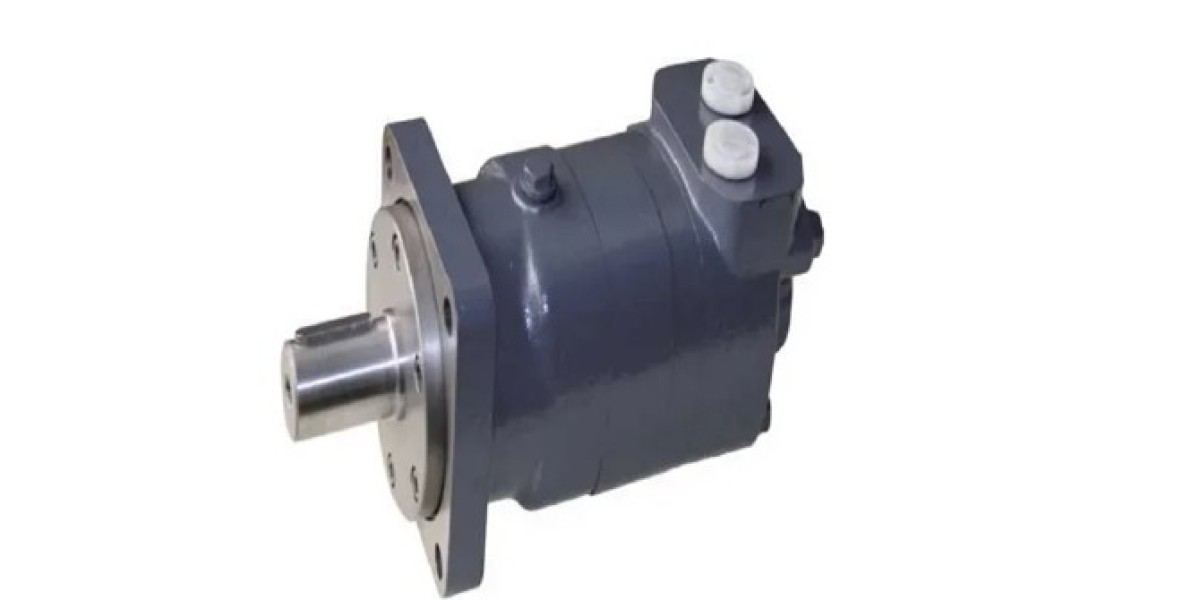Hydraulic motors are essential components of various machinery and systems, providing efficient mechanical power through the conversion of hydraulic energy into rotary motion. One vital element within a hydraulic motor is the flow valve, responsible for controlling and directing the flow of hydraulic fluid. In this blog post, we will delve into the operating principle of the flow valve in a hydraulic motor, exploring its significance and functionality.
1. What is a Hydraulic Motor?
Before diving into the details of the flow valve, let's briefly understand the fundamentals of a hydraulic motor. A hydraulic motor is a device that converts hydraulic pressure and flow into rotational mechanical motion. It operates based on the principles of fluid dynamics, utilizing hydraulic fluid to generate power for various applications.

2. The Significance of the Flow Valve
The flow valve is a critical component of a hydraulic motor as it ensures precise control over the flow rate and direction of hydraulic fluid. By regulating the flow, the flow valve enables the hydraulic motor to deliver the desired speed and torque, allowing for efficient operation of machinery.
3. Operating Principle of the Flow Valve
The flow valve in a hydraulic motor operates based on the principles of pressure and flow regulation. It consists of several key elements, including a spool, spring, and control mechanism, working together to control the flow of hydraulic fluid.
a) Spool Design:
The flow valve features a spool, which is a cylindrical component with specifically designed lands and grooves. The lands on the spool are responsible for blocking or allowing the flow of hydraulic fluid through the valve. As the spool moves within the valve body, it aligns the lands with appropriate ports to regulate the fluid flow.
b) Pressure Regulation:
The flow valve incorporates a spring mechanism that applies force to the spool, ensuring it maintains a specific position. This spring force acts in opposition to the hydraulic pressure, and the equilibrium between the two determines the opening and closing of the flow valve. When the hydraulic pressure surpasses a certain threshold, it overcomes the spring force, allowing the spool to shift and adjust the flow rate accordingly.
c) Flow Direction Control:
Flow valves in hydraulic motors also provide control over the direction of fluid flow. This is achieved through the incorporation of additional ports that enable the redirection of fluid to different parts of the motor. By directing the flow, the flow valve enables the hydraulic motor to rotate in either direction or stop altogether.

4. Importance of Flow Valve Adjustment
Accurate adjustment of the flow valve is crucial for optimal performance of the hydraulic motor. It allows the motor to operate within its designed specifications, ensuring smooth operation, extended lifespan, and improved energy efficiency. Improper adjustment can result in excessive fluid flows, pressure spikes, and reduced overall system performance.
5. Applications of Flow Valve in Hydraulic Motors
Flow valves find applications in various industries and systems where hydraulic motors are utilized. From heavy machinery and construction equipment to manufacturing and material handling systems, hydraulic motors with flow valves play a pivotal role in achieving the desired functionality and efficiency.
6. Advancements in Flow Valve Technology
In recent years, there have been significant advancements in flow valve technology for hydraulic motors. These advancements aim to enhance the efficiency, reliability, and overall performance of hydraulic systems. One notable development is the use of electronically controlled flow valves. These valves leverage electronic sensors and controllers to precisely regulate the flow rate and direction of hydraulic fluid. By incorporating feedback mechanisms, they can dynamically adjust the valve position, ensuring optimal performance under varying operating conditions. This level of control results in improved efficiency, reduced energy consumption, and enhanced system response.
7. Maintenance and Troubleshooting
Proper maintenance of the flow valve in a hydraulic motor is crucial for ensuring its longevity and optimal performance. Regularly inspecting the valve for any signs of wear, debris, or leakage is important. Additionally, cleaning or replacing filters and ensuring proper fluid cleanliness will prevent contamination issues that could affect the flow valve's functionality.
In the event of flow valve malfunctions or performance issues, troubleshooting techniques can help identify and rectify the problem. Common troubleshooting steps include checking for mechanical obstructions, inspecting seals and gaskets, and verifying proper adjustment of the spring force. It is also important to refer to the manufacturer's guidelines and consult with hydraulic experts if necessary to ensure accurate diagnosis and resolution of any flow valve issues.

8. Environmental Considerations and Innovations
The efficient operation of hydraulic motors, including flow valves, contributes to overall sustainability efforts by reducing energy consumption and minimizing waste. However, it is crucial to consider environmental aspects associated with hydraulic systems, such as proper disposal and recycling of hydraulic fluids and components.
With increasing emphasis on environmental responsibility, innovations in hydraulic systems have emerged, including the use of biodegradable hydraulic fluids and the integration of environmentally friendly materials in the construction of hydraulic components like flow valves. Additionally, advancements in PET bottle recycling machines offer efficient methods for recycling and reusing plastics, reducing environmental impact.
Conclusion
Flow valves play a vital role in the operation of hydraulic motors, ensuring precise control of fluid flow, pressure and direction of motion. Understanding how they work enables operators and designers to optimize the performance, efficiency and service life of hydraulic systems. Advances in flow valve technology continue to enhance the functionality of hydraulic motors, while maintenance, troubleshooting and environmental considerations contribute to sustainable practices in the field.








